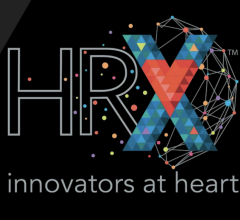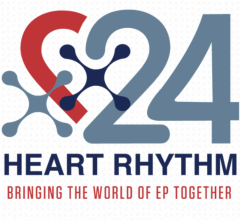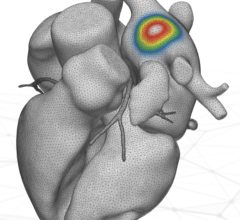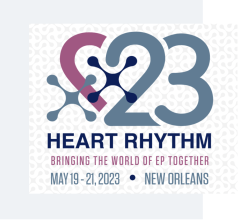
The devices compared in the study were the Bardy Carnation Ambulatory Monitor long-term continuous ECG system (left) and the BioGuardian MCT cardiac event monitor (right).
July 29, 2021 – Results from a new clinical trial found human-oversight dependent continuous electrocardiography (ECG) monitors to more accurately detect significant arrhythmias than artificial intelligence (AI) algorithm-dependent mobile cardiac telemetry (MCT). The study showed there was a 209% increase in detection when humans evaluated the monitoring as compared to algorithmic monitoring to flag events. Findings from this clinical trial were presented today as late-breaking science during Heart Rhythm 2021, the annual meeting for the Heart Rhythm Society (HRS).
The devices compared were the Preventice BioGuardian MCT cardiac event monitor and the Bardy Carnation Ambulatory Monitor long-term continuous ECG system. The BioGuardian uses real-time transmission of data and uses an algorithmic-based detection system to capture arrhythmias and human interpretation of these captured arrhythmias. The Bardy system uses a human-based detection and interpretation system, and has supplemental algorithmic review.
“Reports received from cardiac monitors greatly impact and influence clinical decisions, so accurate readings are crucial," said lead author Mark Willcox, M.D., Alaska Heart and Vascular Institute. "Because every cardiac monitor employs different reporting methods to process recorded rhythms, it can be challenging for the physicians receiving and interpreting the final report. Our study set out to better understand the accuracy between two common options. We found technology, paired with key human oversight and input, proved to be the most accurate in detecting critical arrhythmias and, ultimately, helping to improve patient outcomes.”
Cardiac arrhythmias occur when the electrical impulses that coordinate heartbeats do not work properly, which can lead to serious health issues like stroke and sudden cardiac death. In order to better identify and diagnose arrhythmias, ECG monitors and MCT allow physicians to evaluate cardiac rhythm for an extended period of time in outpatient settings.[1]
Today, a variety of FDA-approved cardiac monitors are available, yet each differ in how the data is reviewed. Initial patient data from these monitors are interpreted by the manufacturers and third-party independent diagnostic and testing facilities before they are shared with the ordering physician for review. This study compares the accuracy of human-oversight dependent continuous ECG monitoring with algorithm-dependent MCT.
This study was conducted in an outpatient arrhythmia clinic and enrolled 50 sequential patients who simultaneously wore both a MCT and a long-term continuous ECG monitor. Of the 50 enrolled patients, four failed to wear both monitors simultaneously and were excluded from the study. Patients wore both monitors simultaneously for at least some time period (range: 1.2 - 14.8 days). Each study and its associated report were reviewed by two electrophysiologists and were categorized based on whether significant clinical arrythmias were identified and correctly diagnosed.
During the simultaneous recording, significant arrhythmias were diagnosed by MCT in 11/46 patients (24%) compared to 23/46 patients by the long-term continuous ECG monitoring, a 209% increase (p=0.018). In addition, in 12 of the 46 patients (26%), a significant arrhythmia finding was missed by MCT, but was captured by long-term ECG. In two patients, AV node re-entrant tachycardia, captured by long-term ECG, was missed by MCT. In three patients, second degree AV block was unreported by MCT, but captured by long-term continuous ECG monitoring. In 7/46 (15%), VT was reported by MCT, compared to 13/46 (28%) patients by long-term continuous ECG monitoring. Atrial fibrillation was documented by both types of monitors in two patients, however, long-term continuous ECG monitoring captured four additional AF episodes missed by MCT.
The authors hope the results of their study will lead to further conversation into the approval process for monitoring devices and how to ensure reporting accuracy among available monitors.
The presentation took place in the session “Late-Breaking Clinical Trials 2: Innovations: Continuous ECG Monitoring Versus Mobile Telemetry: A Comparison Of Arrhythmia Diagnostics Between Human And Algorithm Dependent Systems.”
Find additional HRS 2021 late-breaking trials
Find more HRS 2021 conference news
Reference:


 July 30, 2024
July 30, 2024 









